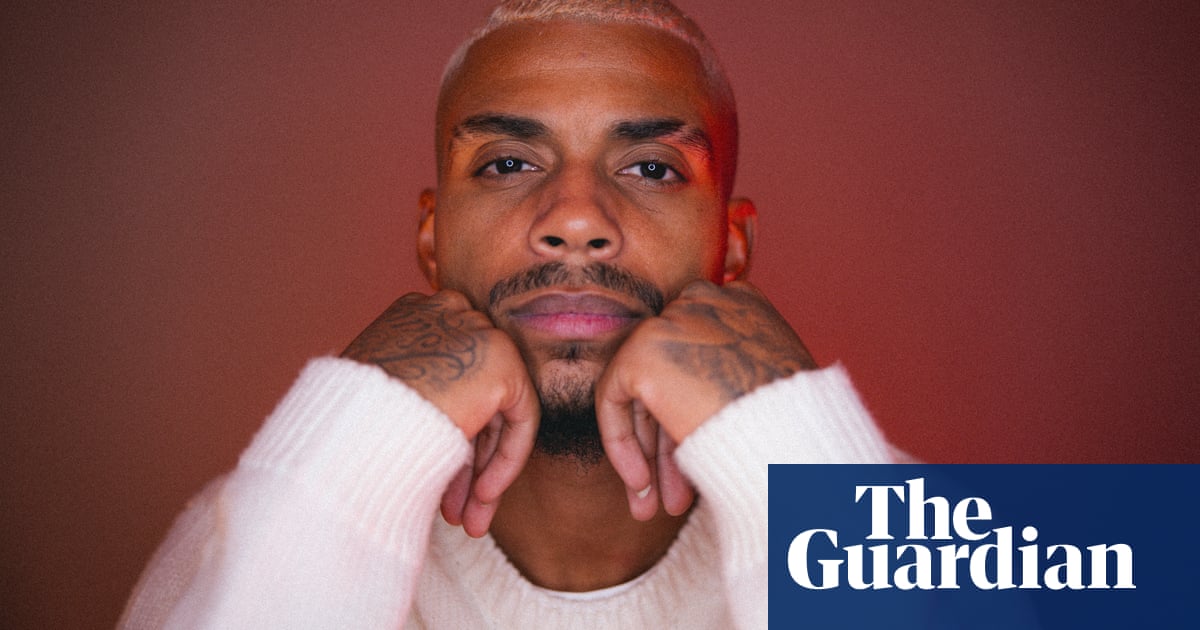
eruche Opia felt an instant click with Michaela Coel when they met at her audition for I May Destroy You. “When I left I felt like I’d been on a great first date, when you want to see the person again,” says Opia, who is a smiling, ebullient presence on Zoom. “It was quite magical – here was almost this electricity from the get.”
Coel evidently felt the spark too because Opia was offered the plum part of aspiring actor Terry, best friend of the lead character Arabella, played by Coel. That was in spring 2019 and the initial fizz between them developed over the course of filming the 12-part TV series: “We started off as fake friends [in the TV series] and now we’re real friends! That’s what I said to her on our last day of filming.”
I May Destroy You became a mega-hit of the summer, its storyline of sexual consent, abuse, empowerment and millennial friendships played out captivatingly by Coel, Opia and Paapa Essiedu. She feels proud to be part of “something extraordinary”, such a groundbreaking show, both for its casting of three black British lead actors as well as its brave, bold content. Coel created, wrote and co-directed the series herself, as well as starring as a writer who is drugged and raped at a bar (Coel based the story on her own experience of assault). “Michaela has kicked the door down,” she says, “and I’m hoping more people of colour will be able to tell their stories now because they are universal and this show is proof that they sell.”
The response she has received since it aired has confirmed its momentous effect on an entire generation, says Opia. “It must have taken so much courage for Michaela to write about her own experience. I remember saying to her: ‘You’ve won because you’ve taken back your power. You’ve turned it completely around.’ And I definitely feel it has empowered other women to speak out. I’ve seen conversations online where people have been able to address their own experiences. Watching the show hasemboldened them, which I think is incredible. It’s a first step to healing – to speak about it and to know they are not alone.”
She was also struck by how many women had been affected by different forms of sexual assault, such as stealthing, which the show explored, but had not always recognised it as such. “I had no idea of [stealthing] myself. I found out about it on the show. It really did inform people. I got responses from men as well. A friend of mine called me and he was, like: ‘Yo, I told all my boys to watch it. I didn’t know about half the stuff on it.’ A lot of young men were educated by it. It makes people really understand the discussion of consent.”
Opia was born in Nigeria and migrated to Britain when she was 13. Her parents are highly accomplished: her mother is a broadcaster in Nigeria and her father is a social sciences professor and author and is involved in Nigerian politics. They supported her from the off when she told them she wanted to pursue acting. “They are both very dramatic people anyway. My mum tried out acting for a bit herself. In 2012, I did a play with Joke Silva. She’s one of the foremost actors in Nigeria and she’s brilliant. When I first met her she told me that she and my mum had started out together but news broadcasting had stolen my mum away.”
Soon after graduating with a drama and sociology degree from the University of the West of England in Bristol (she’d mistakenly thought she was applying for Bristol University, which is known for its strong drama department), she went back to Nigeria and ended up starring in her first Nigerian film, …When Love Happens, for which she earned a nomination as a “Nollywood actress of the year” at the Nigeria entertainment wards in 2015. “I have always wanted to work in Nigeria. Growing up there, I watched Nigerian films and wanted to be part of the renaissance and tell our stories as well. It will continue to be part of my career trajectory.”
Back in Britain, she found her options far more limited. Now in her 10th year of acting, Opia says it has been quite a journey: “I found that the work I was being offered was the sassy rude girl who snaps her fingers and is a stereotypical young black girl. Unfortunately, that was all the work that was available for young black women then – about five or six years ago – which was pitiful. I did it for a while – in [the TV series] Bad Education, in Top Boy – but then I made a conscious decision and told my team I didn’t want to do those roles any more.”
There is a bittersweetness to her success in a year that has been filled with global trauma and struggle, she says, from the deaths of George Floyd and Breonna Taylor in America to the End Sars movement in Nigeria, in which young people have been “assaulted and killed, by a rogue police force”. And then, of course, Covid. Her Christian faith has sustained her through the pandemic, leading her to focus on “what I want to put out and how I want to be as a person”.
Success has given her the gift of choice in her professional life too – she can decide what part to take on next, rather than be saddled with yet another “sassy girl” role. Next up she’s in the new TV series of Samson Kayo’s Sliced. But what would be the perfect future part? “I want to play a superhero, do some sci-fi stuff, play a lawyer. I want to do everything.”












